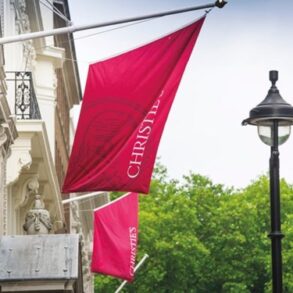Alibaba Group Holding agreed to sell its entire stake in Sun Art Retail Group, China’s largest hypermarket operator, for HK$13.1 billion (US$1.7 billion), as the e-commerce giant scales back its bricks-and-mortar presence.
The deal between Alibaba and Chinese private-equity firm DCP Capital was reached on the last day of 2024, involving the disposal of the Hangzhou-based company’s interest in Sun Art at HK$1.75 per share, according to a New Year’s Day filing to the Hong Kong stock exchange.
Alibaba is expected to book a 13-billion yuan (US$1.8 billion) loss attributable to its shareholders when sale is completed. Alibaba owns the South China Morning Post.
This marks Alibaba’s second major divestment of a bricks-and-mortar business. In December, the company sold its entire stake in department store chain Intime Retail (Group) to Chinese apparel company Youngor Fashion and members of Intime’s management team, taking a 9.3 billion yuan loss in the deal.
The two deals reflect Alibaba’s sharpened focus on its core e-commerce operations and cloud computing operation, which oversees its artificial intelligence-related businesses, under a strategy initiated by group chief executive Eddie Wu Yongming.
Sun Art Retail Group is China’s leading hypermarket operator. Photo: Sun Art alt=Sun Art Retail Group is China’s leading hypermarket operator. Photo: Sun Art>
The sale of Sun Art represents a “good opportunity” for Alibaba to “monetise its noncore assets and to utilise such proceeds to better focus on the development of its core businesses”, the company said in its filing.
Alibaba’s shares in Hong Kong closed at HK$82.40 on Friday. The stock has lost more than 70 per cent of its value from its peak in late 2020.
Investors have been speculating on Alibaba’s divestment of Sun Art since late September, when the Hong Kong-listed shares of the hypermarket operator were suspended on a possible announcement of a mergers-and-acquisition transaction.
Alibaba initially invested in Sun Art in 2017, after which it gradually increased its control of the supermarket chain. In October 2020, Alibaba took control of Sun Art from its French owner, the Mulliez family, for HK$28 billion amid the e-commerce giant’s ambition to create a “new retail” model that leverages online and offline shopping platforms.
Sun Art’s operations, including supermarket brands RT-Mart and Auchan, were integrated with several Alibaba platforms, including on-demand delivery service Ele.me, fresh food delivery service Taoxianda and Tmall Supermarket.
Alibaba’s vision of a retail empire that combines strong online and bricks-and-mortar operations was derailed by headwinds, including the coronavirus pandemic and an economic slowdown that weakened consumer spending.
Competition has also intensified in e-commerce, led by PDD Holdings-owned Pinduoduo and Douyin, the Chinese version of TikTok operated by ByteDance.
That prompted Alibaba to conduct a sweeping restructuring of its sprawling business empire. In November, Alibaba announced that it will merge its domestic and overseas e-commerce operations into one unit under chief executive Jiang Fan, the group’s 39-year-old heir-apparent.
This article originally appeared in the South China Morning Post (SCMP), the most authoritative voice reporting on China and Asia for more than a century. For more SCMP stories, please explore the SCMP app or visit the SCMP’s Facebook and Twitter pages. Copyright © 2025 South China Morning Post Publishers Ltd. All rights reserved.
Copyright (c) 2025. South China Morning Post Publishers Ltd. All rights reserved.
This post was originally published on this site be sure to check out more of their content



